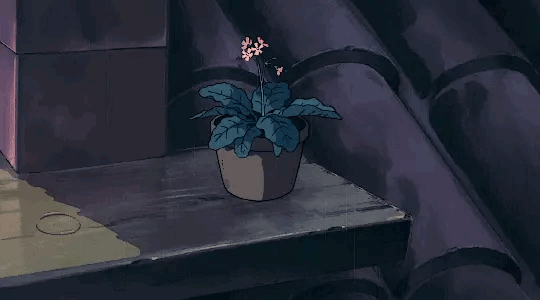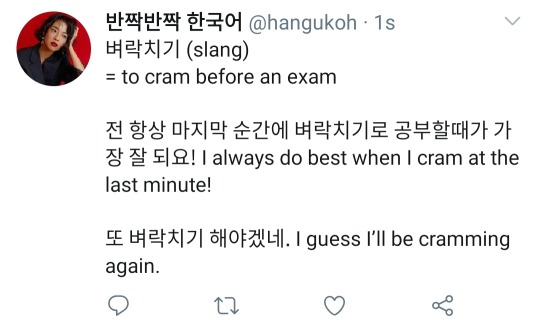🍓 19 • she/her • infj-t | Welcome to my korean study blog where I'll track my progress and share some tips and resources! • beginner • main: velvetsan
Don't wanna be here? Send us removal request.
Text
Dates and Days of the Week
How to write it?
The order is:
Year: 년
Month: 월
Day: 일
Day of the week: 요일
예: 2010년 5월 7일 목요일 (2010 May 7th, Thursday)
For dates you will use the Sino-Korean numbers, so if you gotta check that lesson yet, you can do it here
몇 년?: What year?
예:
2010 년 = 이친십 년 이친십 년: - 이친 (2.000) - 십 (10)
1998 년 = 천구백구십팔 년 천구백구십팔 년: - 천 (1.000) - 구백 (900) - 구십 (90) - 팔 (8)
1864 년 = 천팔백육십사 년 - 천 (1.000) - 팔백 (800) - 육십 (60) - 사 (4)
몇 월?: What month?
January: 1월 / 일월
February: 2월 / 이월
March: 3월 / 삼월
April: 4월 / 사월
May: 5월 / 오월
June: 6월 / 유월 (not 육)
July: 7월 / 칠월
August: 8월 / 팔월
September: 9월 / 구월
October: 10울 / 시월 (not 십)
November: 11월 / 십일월
December: 12월 / 십이월
며칠?: What day?
it’s not 몇 일 as we could guess with the others, but 며칠 all together and combined.
And the days are:
1일 / 일일
2일 / 이일
3일 / 삼일
4일 / 사일
5일 / 오일
6일 / 육일
7일 / 칠일
8일 / 팔일
9일 / 구일
10일 / 십일
11일 / 십일일
12일 / 십이일
13일 / 십삼일
14일 / 십사일
15일 / 십오일
16일 / 십육일 (read it as 심뉴일)
17일 / 십칠일
18일 / 십팔일
19일 / 십구일
20일 / 이십일
21일 / 이십일일
22일 / 이십이일
23일 / 이십삼일
24일 / 이십사일
25일 / 이십오일
26일 / 이십육일 (read it as 이심뉴길)
27일 / 이십칠일
28일 / 이십팔일
29일 / 이십구일
30일 / 삼십일
31일 / 삼십일일
무슨 요일?: What day of the week?
You can either write the whole day, aka 월요일, or just write the first part, aka 월 in your diary or some calendar. Actually you will find it in the short form in most of the agendas or calendars since it’s already know that the days of the week end with 요일 and would be useless to repeat it all the time
Monday: 월 / 월요일
Tuesday: 화 / 화요일
Wednesday: 수 / 수요일
Thursday: 목 / 목요일
Friday: 금 / 금요일
Saturday: 토 / 토요일
Sunday: 일 / 일요일
In conversation
A. 오늘이 며칠이에요? (what is today’s date?) B. 5월 5일이에요 / 오월 오일이에요 (it’s May 5)
A. 오늘 무슨 요일이에요? (what day of the week is today?) B. 화요일이에요 (it’s Tuesday)
A. 언제 결혼했어요? (when did you get married?) B. 2001년에 결혼했어요 / 이천일 년에 결혼했어요 (we got married in 2001)
Activity
Complete each sentence with the appropriate dates in Korean:
1993.06.23 (금)
2009.03.18 (토)
1982.09.07 (일)
2013.10.31 (목)
source: Korean Grammar in Use - Beginner

177 notes
·
View notes
Text
Hello! Idk if anyone here noticed but I've been gone for so long lol🐵 I had to take a break from studying and everything tbh because my mental health was at an all time low. I'm feeling a lot better now! I've been focusing on developing healthy habits like walking and running etc and now I'm feeling like I have the motivation to slowly get back to other stuff I like! I'm going to get back to studying Korean and posting my progress and stuff here hopefully as soon as tomorrow💕 I'm going to take it slowly and try to make it as fun as possible for myself to stay motivated! I also will try my best to interact with people here because I'd love to have someone to study with :^]
#thats it for now!#i hope everyones alright and feel free to send me an ask/anon/message etc 🌞#ddalgi•talks🍓#that will be my lil tag for when im talking about anything that isnt about studying
2 notes
·
View notes
Text
Korean Resources
I’ve updated the Korean Resources section of The Library and I’ve made it rebloggable for those that prefer that :)
Korean
Routledge Grammar - Basic Korean - A Grammar and Workbook (second source) (third source)
Routledge Grammar - Intermediate Korean - A Grammar and Workbook (second source)
Using Korean - A Guide to Contemporary Usage
Korean Grammar for International Learners
Colloquial Korean - The Complete Course for Beginners
Korean Level 1 (Seoul National University)
Essential Korean [Ellen K. Yoon]
Dirty Korean: Everyday Slang from “What’s Up?” to “F*%# Off!” [Haewon Geebi Baek] (second source)
Korean Grammar for International Learners [Ho Bin Ihm, Kyung Pyo Hong, Suk In Chang]
Korean Word Book [Marshal R Pihl]
My First Book of Korean Words: An ABC Rhyming Book [Henry J. Amen IV, Kyubyong Park]
Using Korean: A Guide to Contemporary Usage [Miho Choo, Hye-Young Kwak]
College Korean
Intermediate College Korean [Clare You, Eunsu Cho]
Elementary Korean [Ross King, Jae-Hoon Yeon]
Hippocrene Beginner’s Series - Beginner’s Korean
Korean From Zero 1
Korean Grammar in Use: Beginning to Early Intermediate
Korean through English, Book One
Korean: A Complete Course for Beginners [Jaemin Roh]
My Korean 1 [Young-A Cho, In-Jung Cho, Douglas Ling]
My Korean 2 [Young-A Cho, In-Jung Cho, Douglas Ling]
Step by Step: Korean through 15 Action Verbs [Dr In Ku Kim-Marshall]
Beginner TOPIK Grammar & Vocabulary
Intermediate TOPIK Grammar
TOPIK Elementary Adjectives
TOPIK Elementary Grammar
TOPIK Elementary Nouns
TOPIK Intermediate Adjectives
TOPIK Intermediate Grammar
TOPIK Intermediate Nouns
TOPIK Intermediate Verbs
TOPIK Listening Files
Korean In Action: For International Learners [Gi-Hyun Shin, Adrian Buzo]
Making Out in Korean (second source)
Harry Potter and the Philosopher’s Stone [Korean]
Harry Potter and the Chamber of Secrets [Korean]
Harry Potter and the Prisoner of Azkaban [Korean]
Harry Potter and the Goblet of Fire [Korean]
Harry Potter and the Order of the Phoenix [ Korean]
Harry Potter and the Half-Blood Prince [Korean]
Harry Potter and the Deathly Hallows [Korean]
6K notes
·
View notes
Text
From Beginner to Intermediate: an intense plan for advancing in language
Introduction
I've studied Spanish at school for 3 years and now I'm at a low B1 level. I can actually understand pretty well while listening or reading but I can't communicate fluently.
This plan will include vocabulary build up, some grammar revision, a lot of listening, reading and writing. And could be used for the most languages, not only Spanish.
Plan
Every day:
Conjugate one verb in present, past and future tenses
Make a list about 10 - 30 words long
Create flashcards with them and start learning them (I use Quizlet for flashcards)
Revise yesterday's set of flashcards
2-3 times a week:
Read an article or a few pages from a book
Write a few sentences about anything in your target language
Listen to one episode of podcast (at least one)
Once a week or every two weeks:
Watch a movie in your target language, preferably animated movie as the language used there is easier. You can watch with subtitles
Grammar exercises
Translate some short text
Once a month:
Write something longer, like an essay or report, on chosen topic
Additionally:
Talk to yourself, to your friends, to your pets
Text with someone
Look at the transcription while listening to the podcast for second time
Repeat what you hear (in podcast or movie)
Check words you don't know from the listening and reading
Read out loud
Listen to music in your target language - you can even learn the text and sing along
Watch YouTube in your target language
Change your phone language to the one you're learning
Think in you target language!!!
***This is very intense plan for self-learners, you don't have to do all of these things in the given time. Adjust it to your own pace. I'll try to stick to this, if I have enough time.***
10K notes
·
View notes
Text
i forgot i said id post about particles first but a post for those is coming tomorrow!
2 notes
·
View notes
Text
Hangul sound change rules [받침]
(longer post but i wanted to explain everything properly and give some examples)
[ » 받침 - consonant | » 겹받침 - double consonant ]
In Korean the pronunciation of a consonant depends on where the consonant is in the word/syllable. These are some rules that should be learnt after learning Hangul in order to be able to read and speak properly.
● T stops
ㅅ, ㅈ, ㅊ, ㅎ change to a 'T' sound at the end of a syllable
e: 이것 ( igeot), 늦게 (neutke), 좋다 (jotta)
« the rule does not apply if ㅅ,ㅈ,ㅊ,ㅎ are followed by ㅇ (i.e. 것이 (geoshi), 발아 (pala), 늦어 (neujeo), 꽃이 (kkochi) »
● 's' to 'sh' sound with ㅅ
ㅅ combined with ㅣ, ㅕ, ㅑ, ㅛ, ㅠ results in the 's' sound changing to a 'sh' one
e: 시 (shi), 쇼 (shyo), 셔 (shyeo), 샤 (shya), 슈 (shyu)
ㅅ remains as 's' when with ㅏ, ㅓ, ㅡ, ㅔ, ㅐ, ㅜ, ㅗ
e: 사 (sa), 서 (seo), 스 (seu), 수 (su), 소 (so), 세 (se), 새 (sae)
● ㅅ followed by ㅎ
ㅅ followed by ㅎ sounds like ㅌ
e: 못하다 (reads like 모타다), 못해요 (reads like 모태요)
● 'L' and 'R' sound for ㄹ (리을)
ㄹ at the end of the word sounds like 'L' (정말 → jeongmal)
two ㄹ after eachother sound like 'L' (빨리 → palli)
ㄹ at the end of a syllable somewhere in the word sounds like 'R' (물을 → mureul)
ㄹ at the beginning of the word sounds like 'R' (러시아 → Reoshia)
● ㄹ (리을) and ㄴ (니은) combinations
ㄹ and ㄴ next to each-other results in a double ㄹ (L) sound
e: 설날 (seollal), 신라 (shilla)
● silent 겹받침 (double consonant)
sometimes one of the double consonants is silent
e: 삶 reads like → 삼 (sam); 싫어 reads like → 시러 (shireo)
● 'ch' sound when not expected
ㄷ followed by ㅎ results in a 'ch' sound
e: 끝이 (kkeuchi), 같이 (kachi), 닫히다 (tachida)
● the various sounds for 하다
하다 has a few changes. It tends to blend into the Hangul character before it
this change is common with other words that have ㅎ (i.e. 천천히 → 천처니; 안녕하세요 → 안녕아세요)
The ㅎ in 한글다 is silent : 공부하다 (reads as 공부아다), 말하다 (reads as 마라다)
When 하다 is aft ㄱ or ㅂ they change into their harder sounding counterparts (ㄱ→ㅋ; ㅂ→ㅍ) : 대답하다 (reads as 대다파다), 착하다 (reads as 차카다)
● shifts to a hard sound before and after ㅎ
when ㄱ,ㄷ,ㅂ,ㅈ are before/after ㅎ their sounds shift to their harder sound counterparts ㅋ,ㅌ,ㅍ,ㅊ
after ㅎ : 싫다 → 실타 ; 좋지 → 조치 ; 그렇게 → 그러케
before ㅎ : 축하 → 추카 ; 대답해 → 대다패
● vowel after the consonant
when a syllable ends with a consonant and the next one starts with a vowel (ㅇ+ vowel), in speaking the consonant replaces the ㅇ and joins the vowel
i.e: 섬이 sounds like 서미, 섬에 sounds like 서메
● final consonants p, t, ch, k in a syllable change to b, d, j and g
책 alone would be read as 'chaek' but when followed by a vowel (i.e 책이) it should be read as 'chaegi'
e: 한국에 (hanguk→ hanguge), 낮에 (naj→ nache)
● p, t, k → m, n, ng
if the first syllable ends with 'p', 't' or 'k' and the second syllable begins with 'm' or 'n', they change to m, n, ng
집마다 (jimmada), 못먹고 (monmeokko), 책마다 (chaengmada)
● tp, ts, tk → pp, ss, kk
못봐요 → mo ppwayo , 못사요 → mo ssayo, 못가요 → mo kkayo
● dropping the 'w' sound especially after b, p, m, pp, u, o
점원 (read as jeomeon), 구월 (gueol), 오월 (oeol)
● replacing b, d, j, s, g with their tense counterparts
b → pp, d → tt, j → jj, s - ss, g - kk
i.e: 어젯밤 (sounds like eojetppam), 열둘 (yeolttul)
!! Note that I'm a beginner and I'm writing stuff that I've learnt from different textbooks and videos so mistakes are possible. If you notice something incorrect or a typo, feel free to correct me by messaging me🌞💕!!

#study korean#studyblr#korean language#language#language blog#korean langblr#langblr#korean grammar#learn korean#korean#한국어배우기#한국#한국어#한국말#language learning#language study#long post
111 notes
·
View notes
Text
Vocabulary - Everyday Objects at Home
옷장 Closet
냉장고 Refrigerator
화장대 Vanity
책장 Bookshelf
이불 Blanket
식탁 Table
선풍기 Electric Fan
세탁기 Washing machine
청소기 Vacuum Cleaner
세면대 Sink
욕조 Tub
휴지 Tissue
에어컨 Air Conditioner
책상 Desk
수건 Towel
손수건 Handkerchief
전등 Lamp
책 Book
컵 Cup
창문 Window
벽 Wall
바닥 Floor
침대 Bed
선반 Shelf
커튼 Curtains
의자 Chair
액자 Picture Frame
-Written by Admin Sun
-Edited by Admin Yu
227 notes
·
View notes
Text
• Sentence structure •
In Korean the order of the elements in a sentence is SOV (Subject - Object - Verb (predicate)) so it's different from the English SVO one.
example: 마크가 사과를 먹어요. - Mark eats an apple.
마크 - Mark + 가 - subject marker particle
사과 - an apple + 를 - object marker particle
먹어요 - eats
Which would literally translate to 'Mark an apple eats."
The common sentence pattern in Korean is:
SUBJECT+TIME+PLACE+OBJECT+ADVERB+VERB
e: 엄마는 어제 식당에서 갈비를 먹었어요. My mother ate galbi at the restaurant yesterday.
but it often differs in daily conversations as the elements of the sentences all have particles which help you understand what which word represents (a subject; an object etc.).
Four basic sentences types:
subject + noun
e: 나는 학생입니다 - I am a student.
subject + verb
e: 주영은 힘차게 달린다 - Juyoung runs vigorously (adverb 'vigorously' (힘차게) goes before the verb)
subject + adjective
e: 산이 아름답다! - The mountain is beautiful!
subject + object + verb
e: 영희는 어제 정원에 꽃을 심었다 - Younghee planted a flower in the garden yesterday. (어제 → yesterday | 정원에 → in the garden | 꽃을 → a flower)
•••
I'm going through my Korean notebook today and I'm revising what I've learnt so far so I'll be making posts for those. The next one will be about particles!
!! Note that I'm a beginner and I'm writing stuff that I've learnt from different textbooks and videos so mistakes are possible. If you notice something incorrect or a typo, feel free to correct me by messaging me🌞💕!!

#korean#한국어#learn korean#korean langblr#language blog#language#studyblr#한국#한국어 배우기#한국어배우기#korean language#langblr#langblog#korean grammar#grammar🍓#study korean
12 notes
·
View notes
Text
🍓introduction
Hello! My name is Jasmina and I'm 19 y/o. I just properly started my journey of learning Korean after a few failed attempts over the last 5 years lol. I speak Bosnian and English, and my Korean is at the beginner level.
I decided to make this blog in order to easily keep track of my progress, interact more with content that's in Korean; hopefully help others if I'm able to and ideally make some friends! I'll mainly be posting my own content (grammar, vocab, my resources and recommendations) 🌞
17 notes
·
View notes


